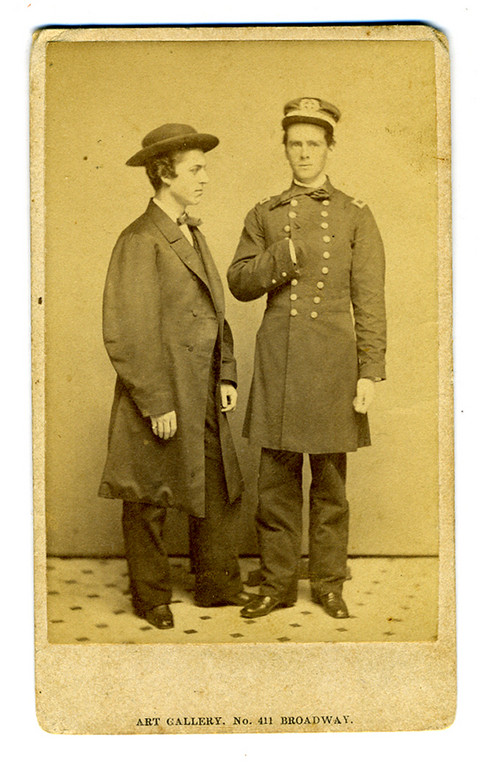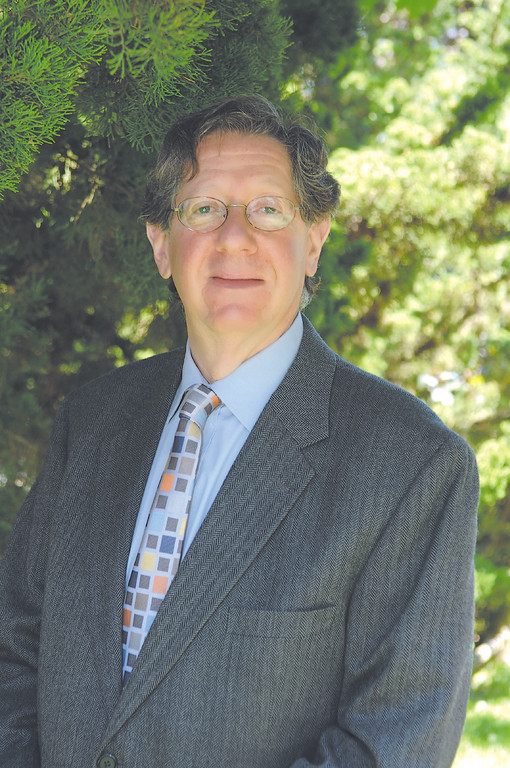The message of Gettysburg for America’s Jews
One hundred and fifty years ago this week, a battle was fought that was destined to define our nation for all time — not through the strategic military prowess of our troops, although that was a factor, nor through our overwhelming military might, but rather through a two minute speech that was to be given over four months later on that same battle site.
The speech that followed the Battle of Gettysburg was to set the marker for the very re-definition of the cause and purpose of our republic.
What concerns us this week is the blood and sacrifice that led to the delivery of that great and memorable speech, and the role that the Jewish people, then resident in these United States, played in that struggle.
• • •
Until next month, Yeshiva University Museum, and the American Jewish Historical Society, are presenting an exhibit entitled, “Passages through the Fire: Jews and the Civil War.” According to its sponsors, the Civil War was a major turning point in American Jewish history inasmuch as it gave the then extant Jewish community the ability to participate more fully in American life, in the military and on the civilian domestic commercial front.
Among the books showcased in the exhibit are a Yiddish edition of “Uncle Tom’s Cabin,” a soldier’s Haggadah, and numerous prayer books, diaries and photographs from the distinguished collection of Robert Marcus, including the one featured with this essay of an unidentified chasid and a Union naval officer taken in New York City in 1862.
According to the late Jewish Civil War historian Dr. Bertram Korn, there were five major themes for American Jewry during this period:
• The opportunity accorded Jews to fight as equal citizens and to rise through the ranks, something not granted by most of the world’s great armies at that time.
• Jews’ “total identification with their neighbors” — Northern Jews with the North and Southern Jews with the South. Jews demonstrated their loyalty and patriotism during the Civil War, and then boasted of it for many years afterward.
• Jews’ tenaciousness in courageously fighting for their rights. Soon after the war began, they organized to correct legislation restricting the military chaplaincy to “regularly ordained ministers of some Christian denomination.” In December, 1862, they rushed to the White House to fight General Grant’s notorious Order 11 expelling Jews as a class from his war zone. In both these cases they won empowering rights victories.
• The forthright repudiation of anti-Semitism by Abraham Lincoln, who overturned Grant’s order [“to condemn a class is, to say the least, to wrong the good with the bad. … I do not like to hear a class or nationality condemned on account of a few sinners”]. In the Confederacy, Jefferson Davis likewise repudiated anti-Semitism.
• The acceptance by the president and Congress of the principle of Jewish equality. Notwithstanding considerable wartime anti-Semitism, Jews achieved equal status on the battlefield, and Jewish chaplains won the right to serve alongside their Christian counterparts.
In his essay, “What the Civil War Meant for American Jews,” historian Jonathan Sarna noted that the 150th anniversary of the Civil War has drawn little attention in the organized Jewish community. Hopefully, the YU exhibition will be a harbinger of better things to come in Jewish communal attention, in our shuls and in our schools, with the advent of the 150th anniversary of the Gettysburg Address this coming Nov. 19. The importance of this address and the battle and struggle it personifies can not be underestimated.
According to YU Museum director, Jacob Wiese, “given that it was a civil conflict, it vastly accelerated the process of Americanization; and it laid the groundwork for Jews’ identification with America – and for America’s acceptance of Jews.”
Further, Dr. Jonathan Karp of the American Jewish Historical Society noted that “the Civil War was the first opportunity presented to Jews in large numbers to participate fully in American life. It was a war that let Jews demonstrate their belonging and membership. The Civil War battleground gave the same Jews the opportunity to perform numerous services – as soldiers, nurses, running patriotic fairs, being spies, also something very traditional – peddling.”
In what were possibly the two most expansive essays on the Jewish involvement to date in the Battle of Gettysburg, are hose to be found in “The Jewish Home” by Avi Heiligman, and in The Forward” by Dr. Jonathan Sarna. They both deserve your attention.
Heiligman’s essay focuses upon the person of Louis Leon, a German Jewish sharpshooter from Charlotte, North Carolina, whose diary is extensively quoted in last week’s The Jewish Home.
Dr. Sarna’s essay, “The Battle of Gettysburg; 150 Years Later” in last week’s The Forward, cites numerous Jewish combatants at Gettysburg, including the following:
“To Jews of the time, the fact that they had fought and died on both sides of the bloody battlefield of Gettysburg demonstrated beyond a shadow of a doubt their patriotism, honor, and manhood. … The fact that Jews fought and died at the Battle of Gettysburg might nevertheless give us pause as we commemorate its 150th anniversary. For had Lt. Col. Edward Salomon, Joseph Greenhut, and so many others not held their ground during the battle, the Confederate forces that penetrated into Union territory in Pennsylvania would have threatened Philadelphia, Baltimore, and Washington, D.C. The South might have won its independence.”
Let me conclude with the following observation from Dr. Sarna’s essay:
“The great question of the time, as Abraham Lincoln observed in his Gettysburg Address, was whether, ‘a new nation, conceived in liberty, and dedicated to the proposition that all men are created equal’ could ‘long endure.’ The Battle of Gettysburg, which engaged soldiers of every kind – including Jews – helped to ensure that it did.”
Over the summer, as time permits, read and reread the Gettysburg Address. Take to heart its message and thus come to appreciate why so many of our people came to these shores over the past 150 years.
One thing for sure, had that battle not been won, and its message become a reality, there would never have been that opportunity for us to be here today. None, whatsoever.

 61.0°,
Mostly Cloudy
61.0°,
Mostly Cloudy 







